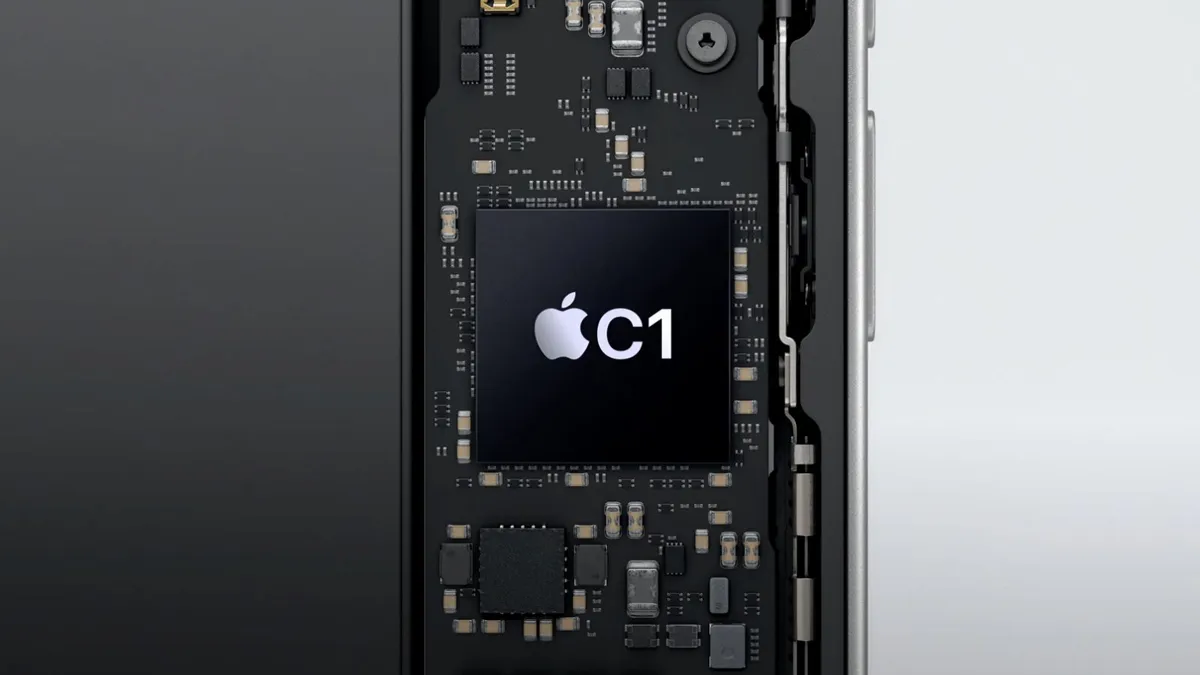
Apple is making significant strides in mobile technology with the development of a refreshed version of its C1 modem, set for mass production next year. According to industry analyst Ming-Chi Kuo, this new iteration will focus on improving power consumption and transmission speed, while also introducing support for mmWave technology.
Kuo recently shared insights on X (formerly known as Twitter), noting that while integrating mmWave baseband capabilities is not overly complex, the real challenge lies in achieving stable performance with low power consumption. The current C1 modem, which debuted with the iPhone 16e, does not support ultra-fast mmWave 5G technology. This limitation means users are missing out on the exceptional speeds that mmWave technology can deliver in high-traffic areas such as stadiums, airports, and bustling urban environments.
Despite the limitations of the existing C1 modem, Apple has emphasized that this is merely the beginning of their journey in modem technology. The company intends to continually enhance their modems with each new generation. Kuo has also indicated that the upcoming iPhone 17 Air, anticipated later this year, will incorporate the C1 modem, further expanding its usage.
While it remains unclear which device will first feature the upgraded C1 modem, speculation suggests that the rumored iPhone 17e could be a contender. Additionally, Apple may introduce this new chip in an iPad or include it in the standard model of the forthcoming iPhone 18 lineup.
Insights from The Information's Wayne Ma predict that Apple will unveil a new custom modem with mmWave support by 2026. This advanced modem is expected to be utilized in both iPhones and at least one iPad model. Furthermore, Kuo's information might actually pertain to what could be termed the C2 modem.
Bloomberg's Mark Gurman has reported that Apple's next-generation C2 modem is likely to debut in 2026, specifically within the iPhone 18 Pro models, highlighting Apple’s commitment to pushing the boundaries of mobile connectivity.
In his analysis, Kuo provided detailed technical specifications regarding the C1 modem's process technology. The modem's baseband operates on a 4/5nm process, while the low-frequency and Sub-6 TRx (transceivers) are built on a 7nm process. Additionally, the Intermediate Frequency (IF) TRx also utilizes a 7nm process, and the Power Management Integrated Circuit (PMIC) is manufactured using a 55nm process.
Kuo clarified that, unlike processors, baseband chips do not necessarily gain advantages from adopting the latest advanced manufacturing nodes, such as 3nm technology. Therefore, it is unlikely that Apple will transition its baseband to a 3nm process in the upcoming year, according to Kuo's insights.
As Apple continues to innovate in the realm of mobile technology, the enhancements to the C1 modem and future developments promise to significantly impact user experiences, particularly in high-speed connectivity.